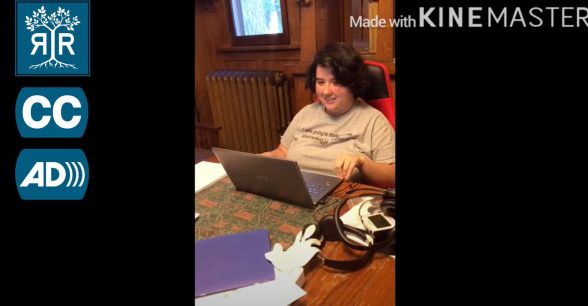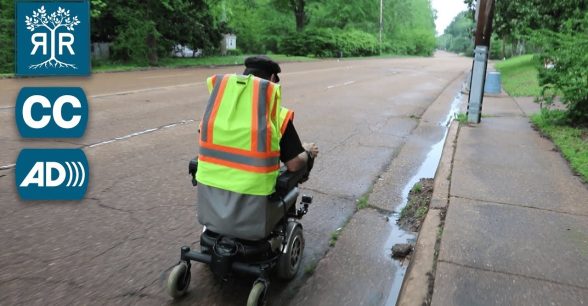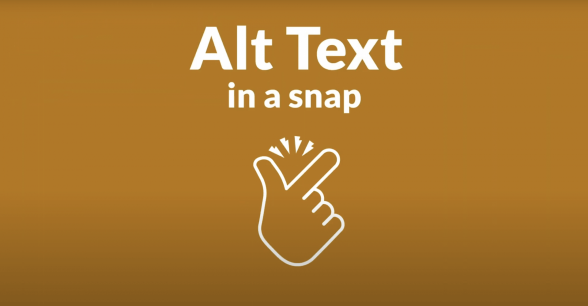VIDEO: People With Mental Health Disabilities Shut Down Dangerous Ideas About Gun Violence
The assertion that severe mental illnesses cause gun violence, specifically mass shootings, is not helpful and not accurate, but it is harmful. It is a dangerous idea. And we hear it from the media and our leaders all the time. Worse, no one ever seems to ask people with mental health disabilities what they think. So we asked. And here’s what they said.
*Trigger Warning: these resources contain content that some viewers may find triggering, such as footage of institutions and stories from people about their experiences in institutions.
How can I find support if I am experiencing symptoms of a mental illness?
Here are a few resources to support you if you are experiencing mental illness symptoms. We also encourage you to seek out local resources in your community. If you are experiencing a mental health crisis, please call 1-800-273-8255, or text “HOME” to 741741 (U.S. only)
National Suicide Prevention Lifeline: 1-800-273-TALK (8255)
Suicide Prevention Resources from the National Institutes of Health (NIH)
Crisis Text Line: text “HOME” to 741741
Substance Abuse and Mental Health Services Administration (SAMHSA)
Living with a Mental Health Condition from the National Alliance on Mental Illness (NAMI)
Intersectional Mental Health Links from QTPoC Mental Health
How many people in the U.S. have a mental illness?
Statistics show that 1 in 5 American adults, over 40 million people, have a mental illness. It’s likely that you have a family member, friend, or co-worker that identifies as having a mental illness.
U.S. Mental Health Statistics from the National Institutes of Health (NIH)
U.S. Mental Health Statistics from Mental Health America (MHA)
Does everyone who commits a mass shooting have a mental illness?
No. There is no evidence that all mass shootings are the results of the shooter having a mental illness or that their actions were a result of a symptom of a mental illness. Statistics show that there is a low percentage of people with a mental illness that commit mass shootings. Factors like racism, transphobia, homophobia, revenge, history of being violent or abusive are common motivators for violence, particularly gun violence.
Position Statement from Mental Health America (MHA)
“Stop Blaming Mental Illness for Mass Shootings” Vox
“Why Better Mental-Health Care Won’t Stop Mass Shootings” The Atlantic
Did President Trump make it easier for people with a mental illness to own guns?
No. President Trump ended an Obama-era rule that discriminated against people with disabilities who have a representative payee to help manage their Social Security disability benefits. The legislation wrongfully targeted people with disabilities and many national disability rights groups spoke out against the rule.
ACLU Letter to the U.S. House of Representatives (2017)
What does institutionalization have to do with gun violence?
Nothing, really. Some leaders, including President Trump, have suggested that locking up people with mental illness in institutions will affect gun violence. But they ignore the enormous harm that can do to people with disabilities. Institutionalization is when people are placed in a residential facility, sometimes against their will. People with mental illnesses can be physically, emotionally, and/or sexually abused, refused access to treatment and medications, and forced to live in unsanitary conditions while institutionalized. Though most mental health institutions in the U.S. closed down, people with disabilities still face the risk of institutionalization through placement in nursing homes, jails and prisons.
“What is Deinstitutionalization?” Article from Open Society Foundations
Willowbrook State School Article from Rooted in Rights Blog
Willowbrook: The Last Disgrace Documentary*
“Institutionalized as a Teen” Short Documentary by Jensen Caraballo*
Access to Mental Health Care and Incarceration Statistics from Mental Health America (MHA)
Inmate Rights Publications and Resources by Disability Rights Washington
Criminal Justice and Mental Health Videos by Rooted in Rights*
What barriers do people face in seeking help for their mental illness?
Inadequate health care coverage, inaccessibility of services and buildings, and cultural and societal stigma are just some of the factors that prevent or delay people from seeking mental health support. Sometimes the wait for an appointment can take weeks or months. People with multiply marginalized identities, such as being a person of color or identifying as LGBTQ may also find it difficult to find a provider or resource that they trust.
The Impact of President Trump’s Fiscal Year 2019 Budget Explained by Mental Health America (MHA)
Medicaid Explained by the National Council for Behavioral Health
American Foundation for Suicide Prevention
How can I support and advocate for people with mental illnesses?
Reformation must happen from the ground-up. Connect with allies in your community to share resources and push for effective, thoughtful mental health reform. Most importantly: actively listen to people with mental illnesses. News coverage of mental health is sporadic and rarely includes input from actual people with mental illnesses. Challenge your social circles and media companies to reframe their understanding of and language around mental health.
Donation
About Rooted In Rights
Rooted in Rights exists to amplify the perspectives of the disability community. Blog posts and storyteller videos that we publish and content we re-share on social media do not necessarily reflect the opinions or values of Rooted in Rights nor indicate an endorsement of a program or service by Rooted in Rights. We respect and aim to reflect the diversity of opinions and experiences of the disability community. Rooted in Rights seeks to highlight discussions, not direct them. Learn more about Rooted In Rights


